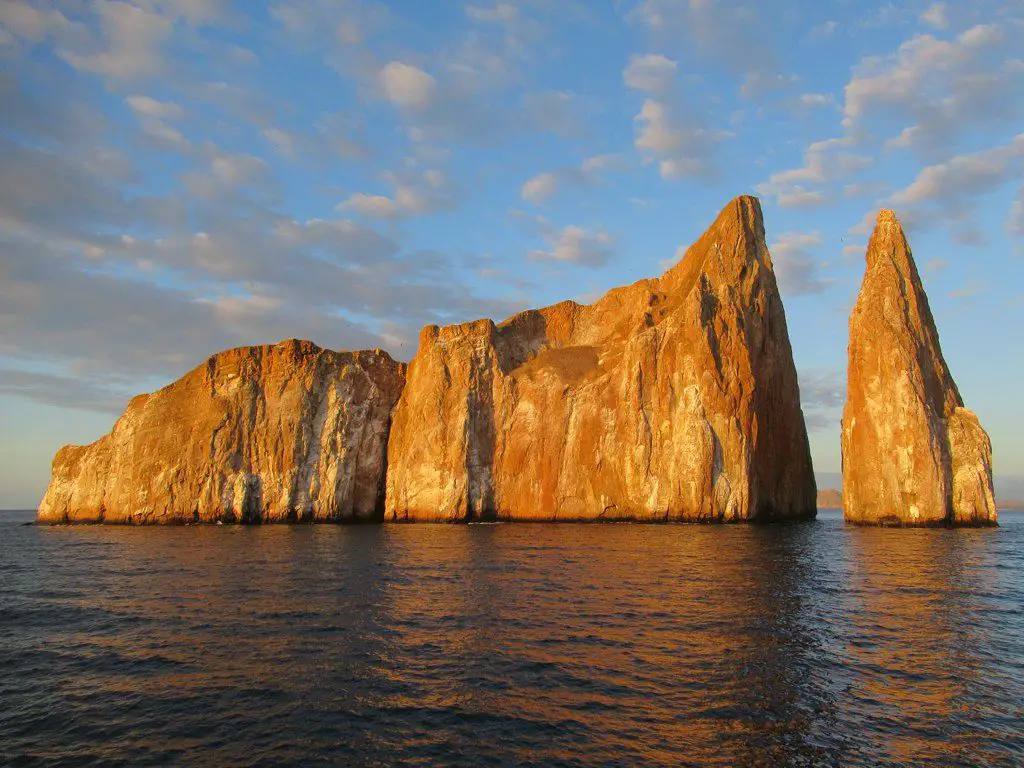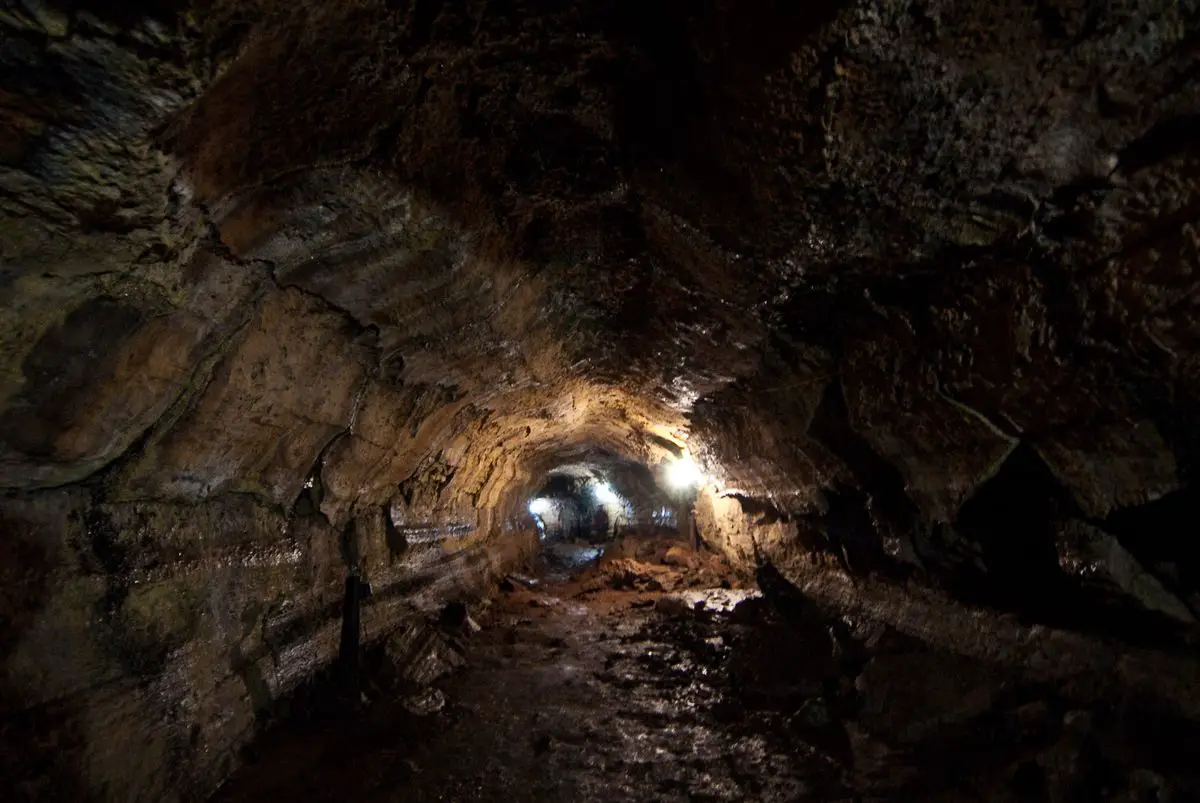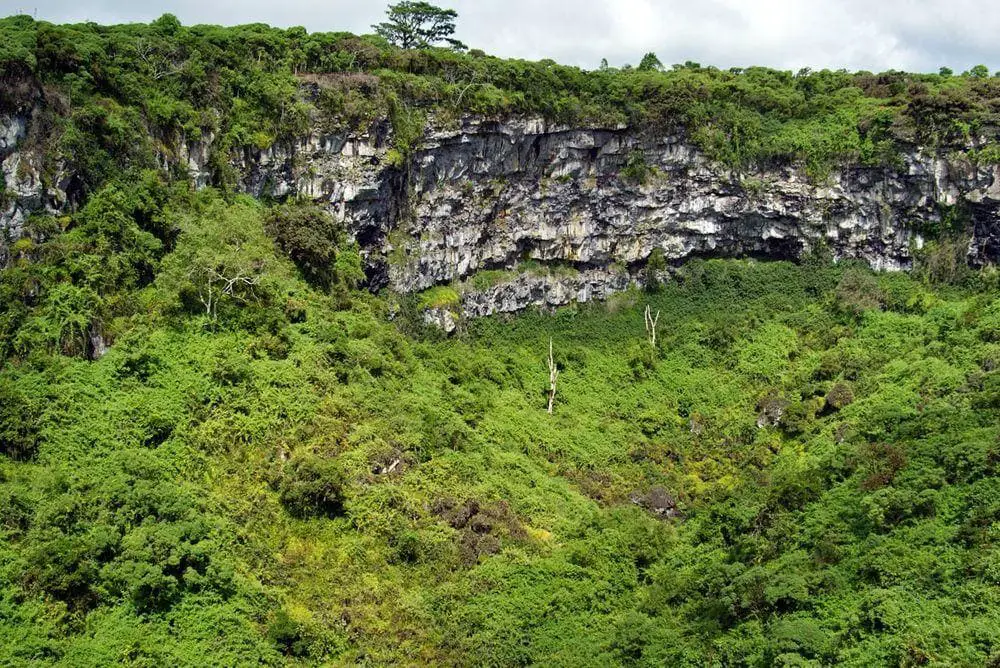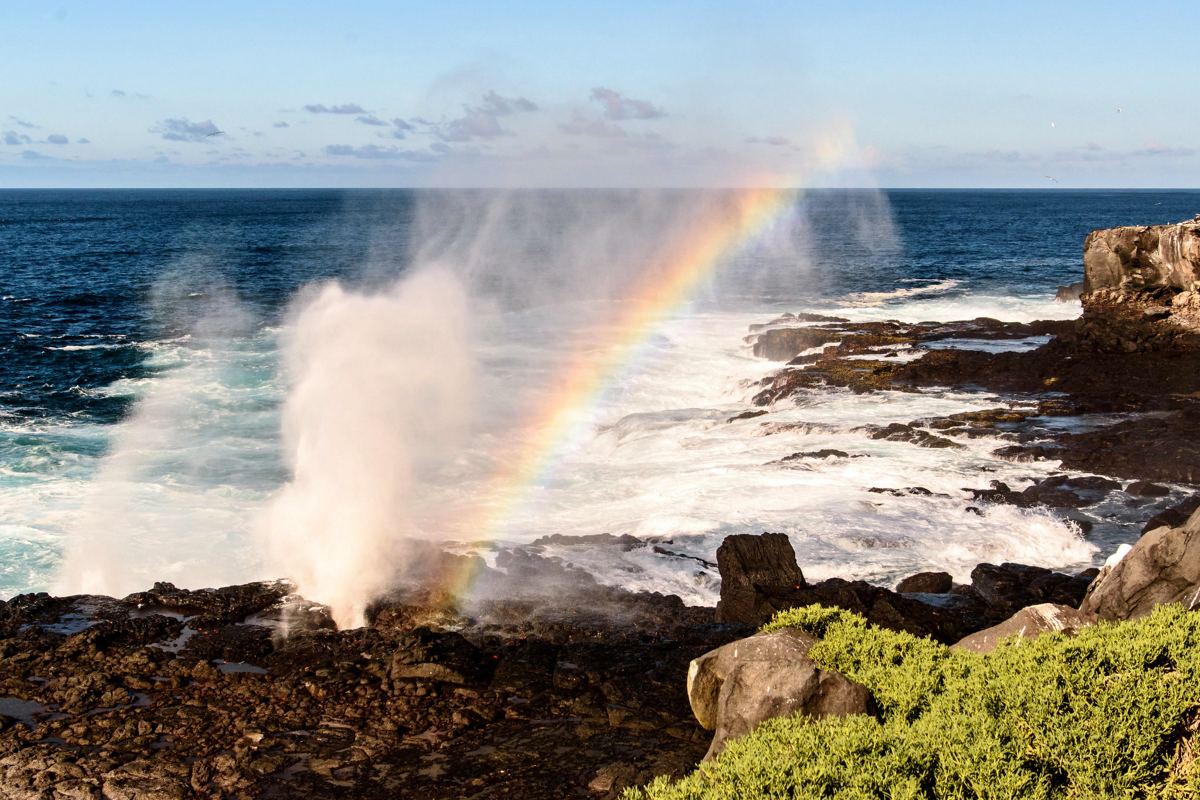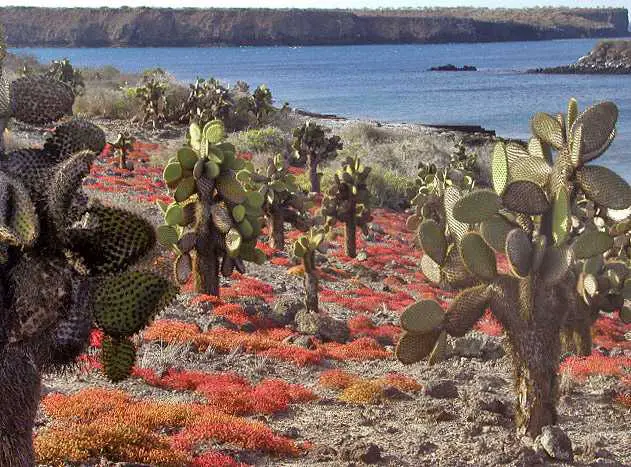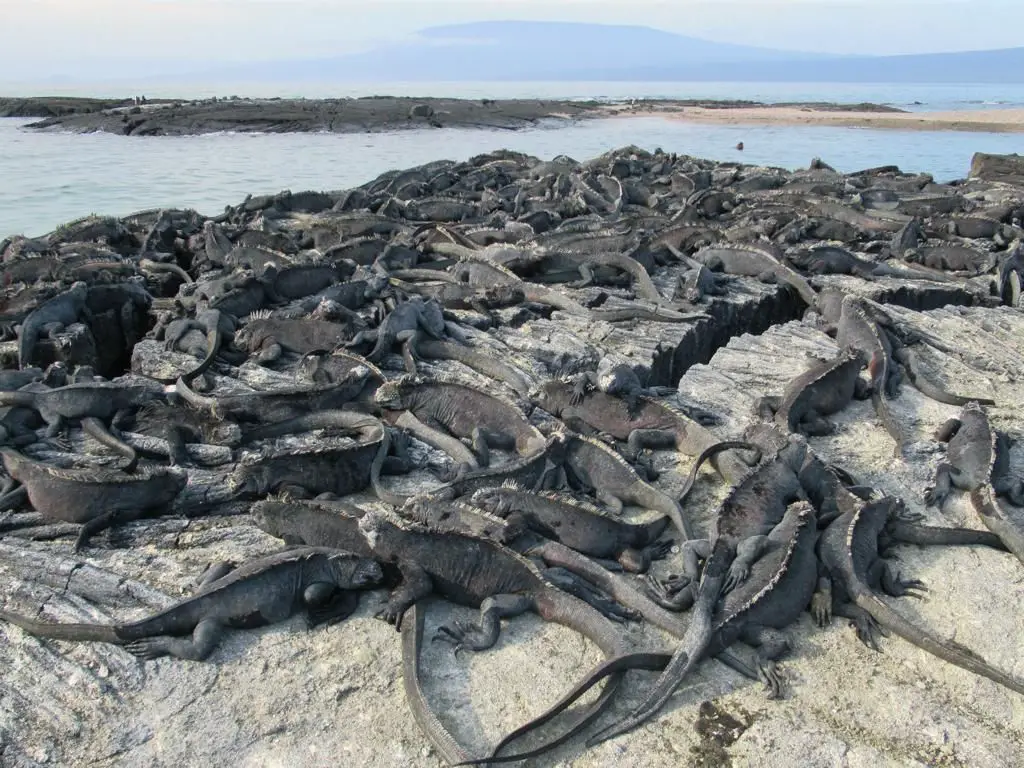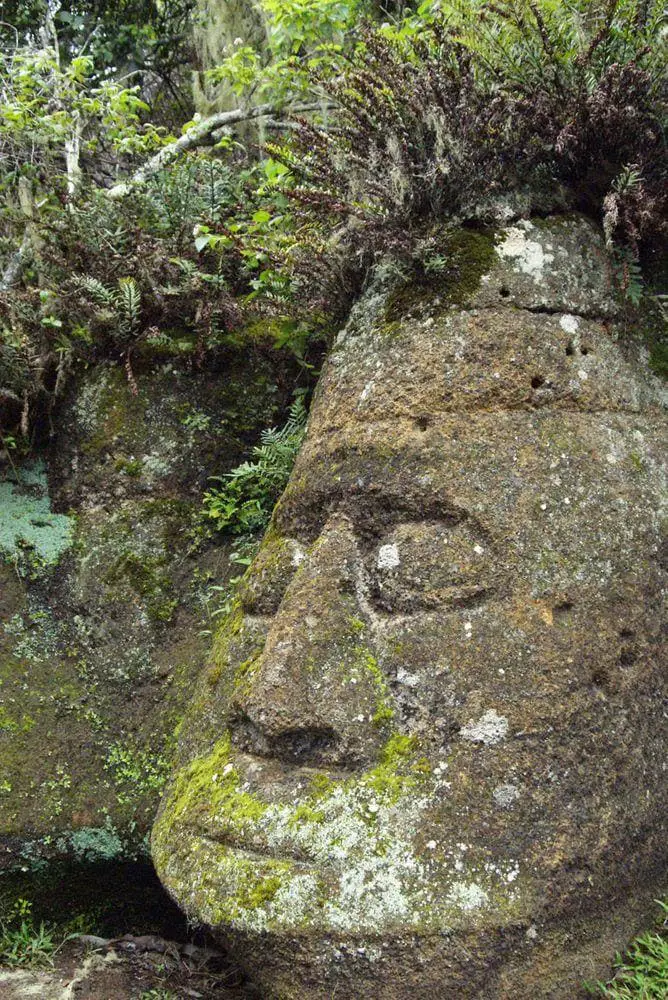Wondermondo 🢖 World 🢖 Wonders of South America 🢖 Wonders of Ecuador 🢖 Wonders of the Galapagos Islands
Territory
Wonders of the Galapagos Islands
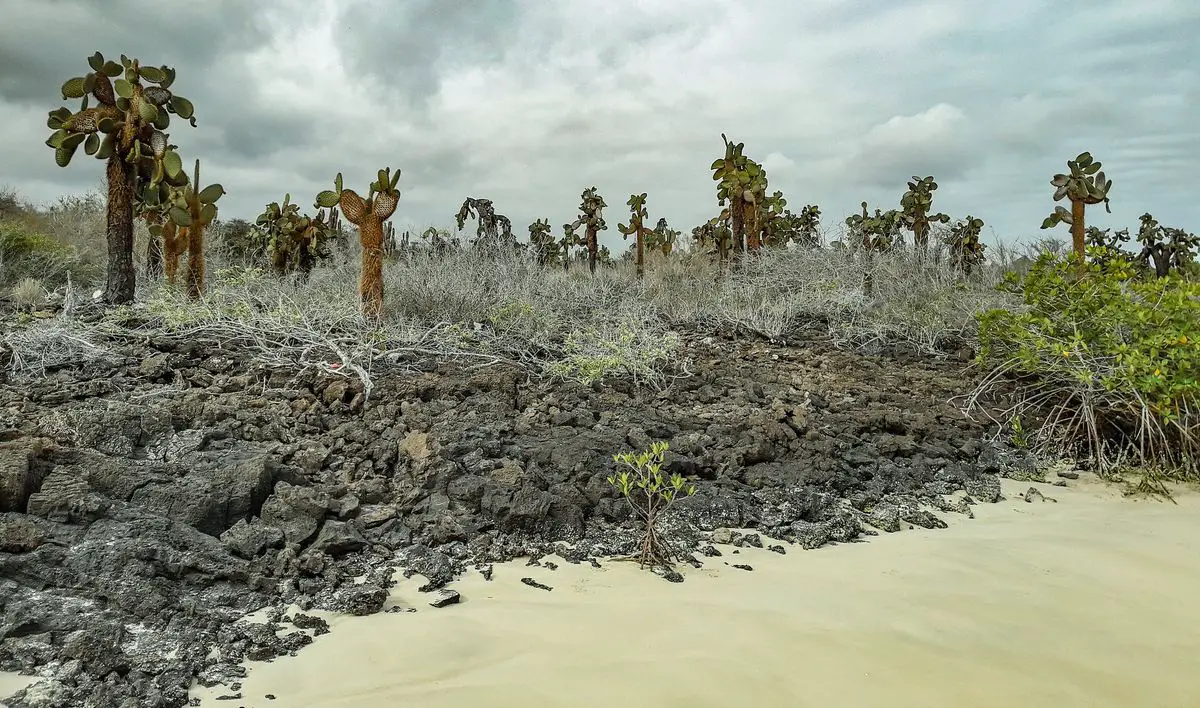
 Highlights
Highlights
Galápagos Islands as a whole are a true wonder of the world.
For several million years life on these remote islands developed independently and many unique species of plants and animals evolved here. Here walk giant tortoises, large lizards dive in the sea looking for food, small passerine birds drink the blood of other birds and high up in the mountains daisies have evolved into large trees.
Wondermondo does not see this large and diverse archipelago as a single wonder and has searched the islands for smaller sites. The most interesting ones are listed here.
Map with the described wonders of the Galapagos Islands
If you see this after your page is loaded completely, leafletJS files are missing.
 Top 15 wonders of the Galapagos Islands
Top 15 wonders of the Galapagos Islands
Geological wonders
Volcan de Azufre
Isabela
Fumarolic area in the crater of Sierra Negra volcano where the extremely rare terrestrial sulfuric flows have been identified.
Kicker Rock (León Dormido)
San Cristóbal
A group of two impressive, up to 150 m tall sea stacks formed from palagonite – a rock formed by the contact of hot volcanic glass with seawater.
Volcan Ecuador
Isabela
A somewhat mysterious volcano that somehow is missing its western half. Maybe this part collapsed in a rather recent past, thus causing a giant tsunami.
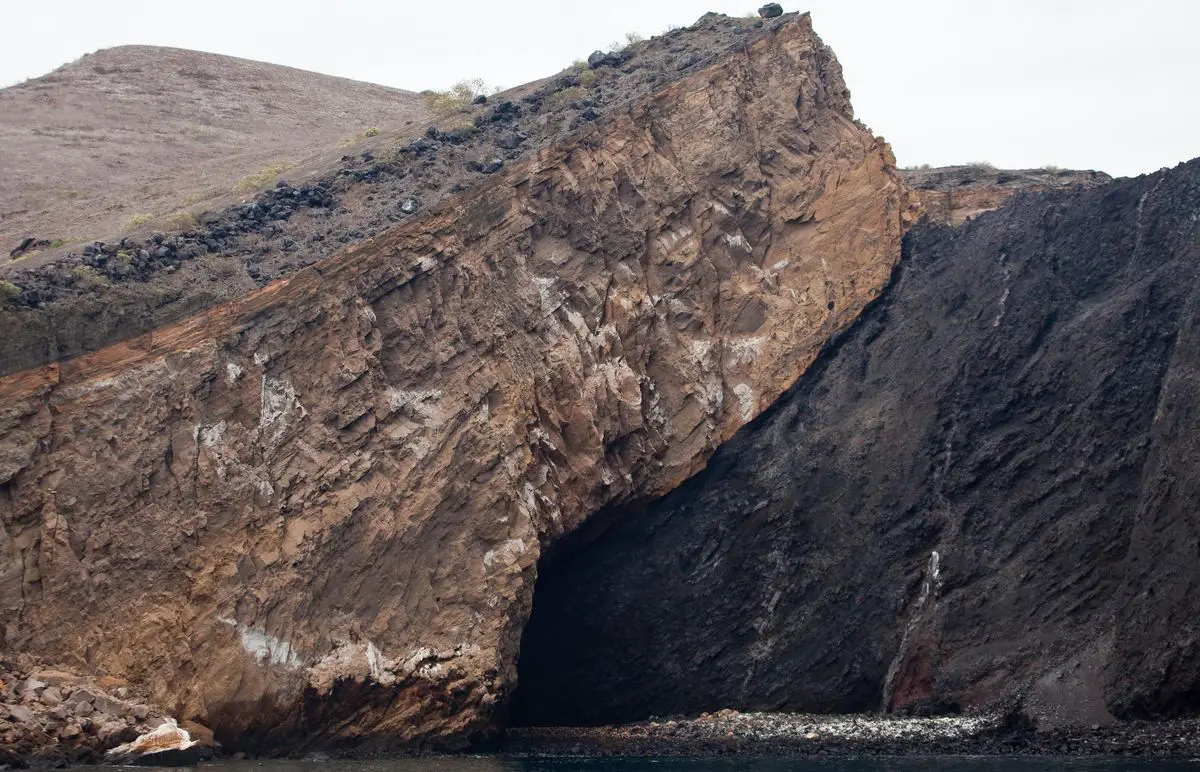
Lava tunnels in Santa Cruz
Santa Cruz
Santa Cruz is especially rich in lava tunnels. Interesting is the “Tunnel of Endless Love” that is heart-shaped in the profile – an 800 m long “heart”. The longest are Cueva del Cascajo (3,010 m) and Cueva de Gallardo (2,250 m).
Los Gemelos craters
Santa Cruz
Two enormous sinkholes that were created by the collapse of two lava caves. Sinkholes and their surroundings are covered with exotic, endemic Scalesia forests.
El soplador – blowhole in Española
Española
In the volcanic rocks of the Galapagos have formed numerous impressive blowholes but “El soplador” is the best known because it is at the tourist route. At high tide “El soplador” at Punta Suarez spouts the water up to 25 m high.
Abingtonite of Pinta
Pinta
Unique basaltic lavas with enormous crystals of plagioclase. This rock is named abingtonite and is found only on Pinta as well as in smaller quantities in the northern Galápagos islands.
Darwin’s Arch
Other islands (near Darwin Island)
Sea stack – a former natural arch that was approximately 15 m tall. Collapsed on the 17th of May 2021, leaving two rock stacks. A spectacular dive site, extremely rich with sea life.
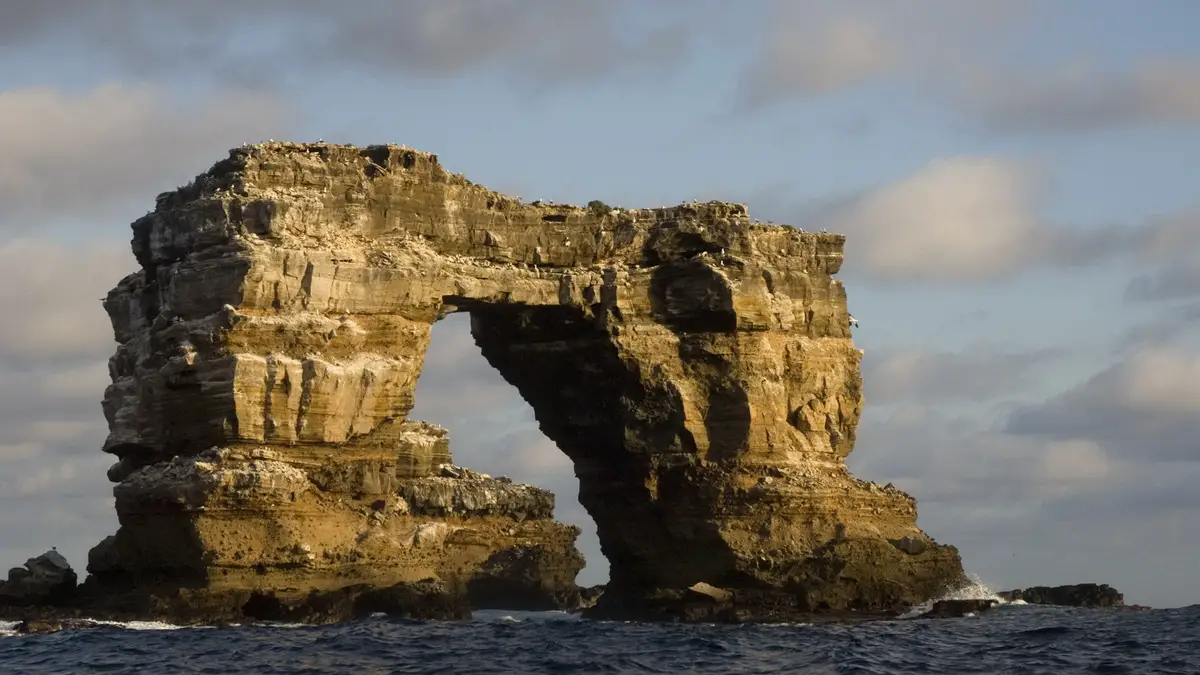
Biological wonders
South Plaza vegetation
Santa Cruz
This 0.13 km² large area is covered with unique vegetation. The ground is lined with succulents – Sesuvium. These plants change the color of the island from intense green to orange and purple in the dry season. From this unusual carpet of plants rise the endemic, tree-like Opuntia cacti. Here lives the unique Hybrid Iguana – a sterile hybrid of the endemic marine iguanas and land iguanas that are able to feed on cacti and hunt in the sea.
The ecosystem of Española Island
Española
On the oldest island of the archipelago (some 3.5 million years old) have developed many endemic species – lava lizard, hood mockingbird (Mimus macdonaldi), and tortoise. This is almost the only place where the waved albatross (Phoebastria irrorata) is breeding.
Punta Espinosa
Fernandina
A narrow lava strip that extends into the sea. In this place gather hundreds of unique marine iguanas (Amblyrhynchus cristatus).
Miconia belt in San Cristobal and Santa Cruz
San Cristobal and Santa Cruz
A zone at 600 – 700 m height, where the endemic Miconia robinsoniana forms dense, 3 – 4 m tall stands. This zone is rich also with ferns and liverworts.
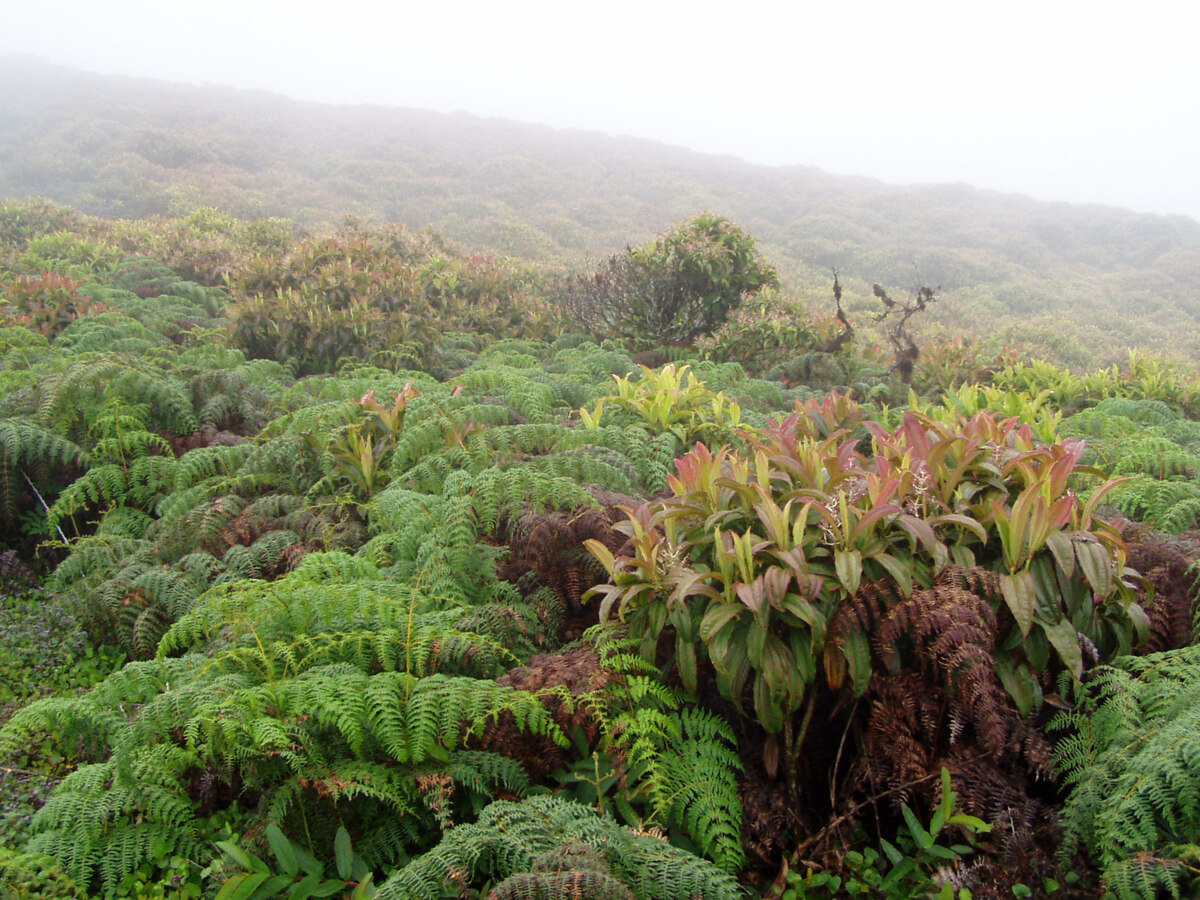
Forest of daisy trees in Santa Cruz
Santa Cruz
Spectacular cloud forest dominated by Scalesia pedunculata trees. This is the largest tree in the Asteraceae family and grows up to 15 m tall. These unusual tree-like daisies are endemic to Galápagos and form smaller forests on several islands.
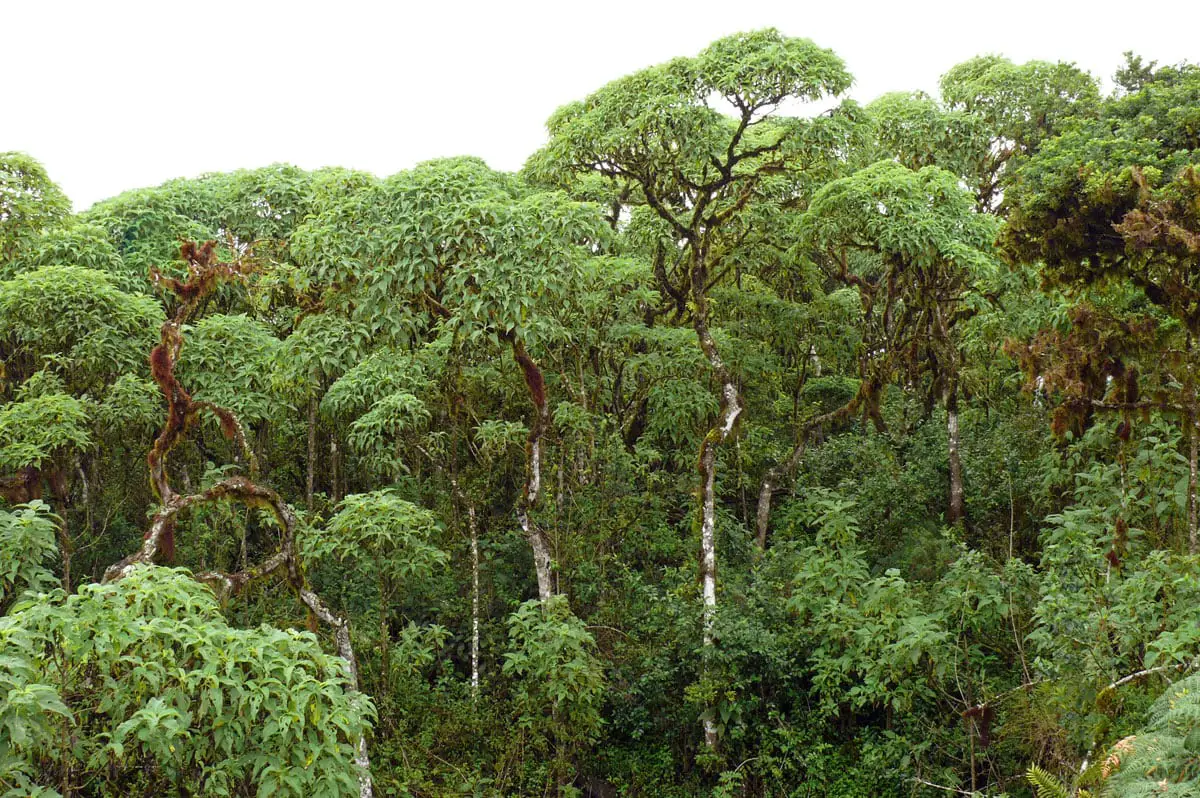
Cultural wonders
Stone head of Floreana
Floreana
A mock-up of the statues in Easter Island, made by a German settler.
James Bay archaeological finds
San Salvador
A find of broken pottery and flints on the cliffs and plateau above the beach. These artifacts have been left by an ancient South American culture.
 Recommended books
Recommended books
Galápagos: The Islands That Changed the World
Rocky, fragile, beautiful, strange―the Galápagos archipelago is unlike any other place on earth. Its geology, its unique flora and fauna, and its striking role in human history intersect in surprising and dynamic ways. This book is the most wide-ranging and beautifully illustrated book available on the famous islands. Not since Darwin’s Naturalist’s Voyage has a book combined so much scientific and historic information with firsthand accounts that bring the Galápagos to life.
Galapagos: A Natural History, Revised and Expanded
Twenty thousand copies of the first edition of Galápagos were sold. An attractive and comprehensive guidebook, this work has been completely revised and updated by the author. The reader will find an easy-to-use text which details the natural history of the plants and animals found in the Galápagos Islands. Management and conservation of the Galápagos National Park are discussed, and visitor information and notes about the various tourist sites are given.

